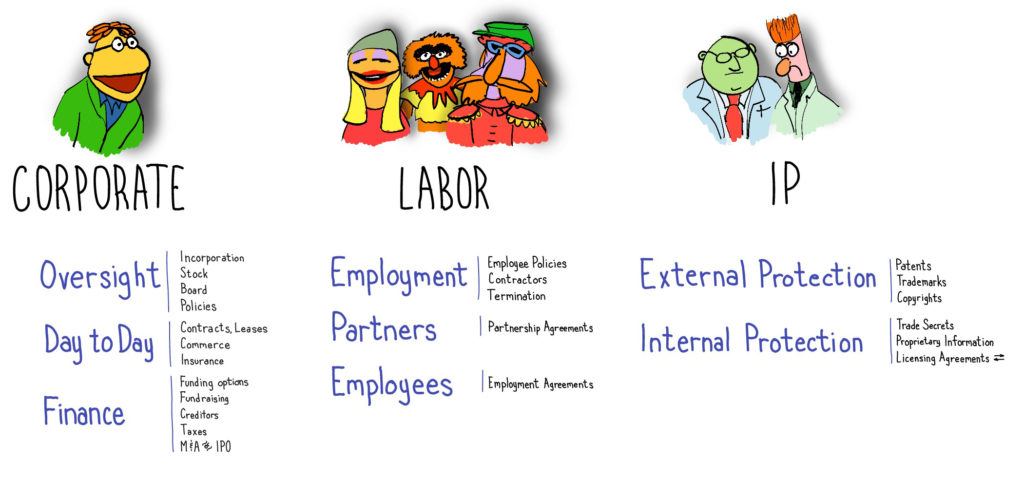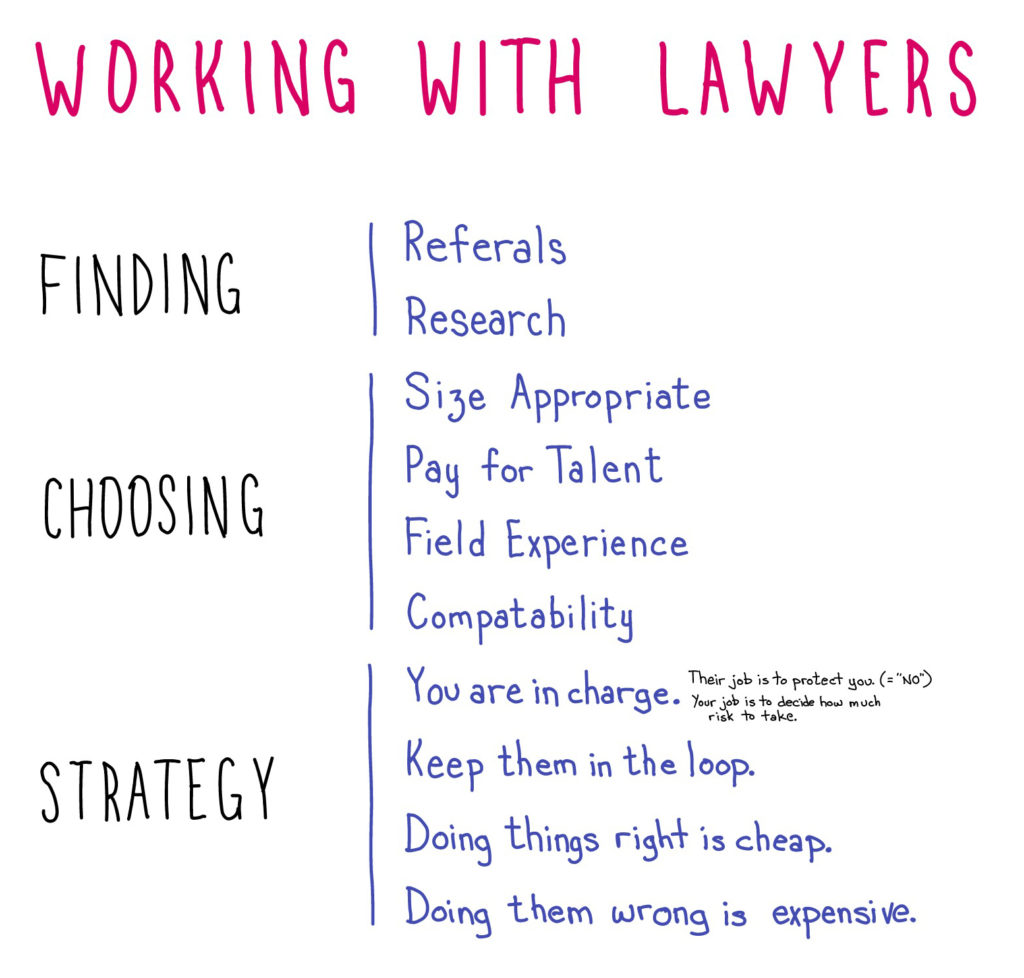- Get it in writing.
- You have to have a good lawyer.
- You need to tell your lawyer everything
The rest of this post is optional.
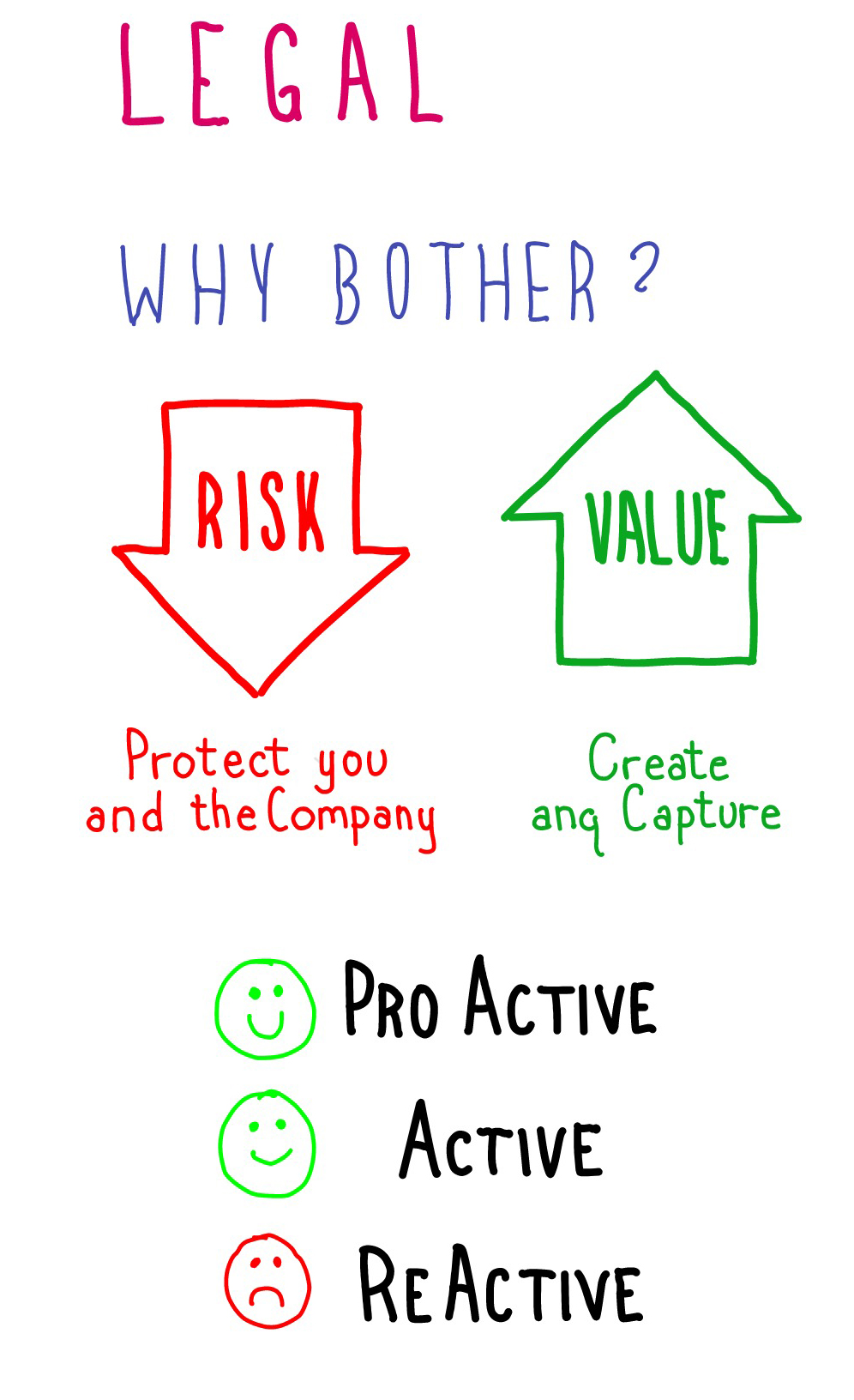
Lawyers will do three things for you and your company: minimize risk, add value, and help you deal with “really bad problems.” They work pro-actively to help you set up policies, protection, and preparation for next steps. They work actively as opportunities and situations arise. And they work reactively when surprises happen.
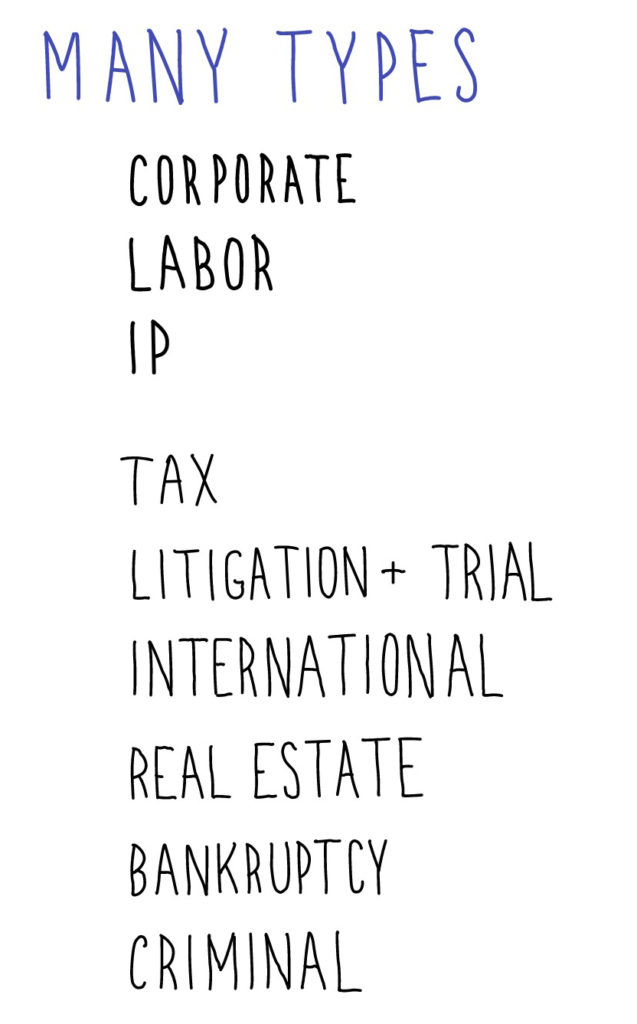
This is an incomplete list of different specialties lawyers and law firms will have. The first three are the areas you will deal with the most in your early startup years. Let’s look at those more closely.
Congratulations! You have a bunch of Muppets working for you! Imagine the mayhem (or Electric Mayhem). This list is some of what you’ll want to deal with pro-actively. If you’re part of an accelerator program they may have legal resources available to you to help with much of this.

In class we talked about a few examples of bad things that happen when you don’t have agreements or policies in writing. Oral agreements are binding in court, but you have no actual proof that such an agreement exists or what the terms are. It’s easy up front to get agreements signed, and almost impossible later.
A lack of documentation for rights, ownership and obligations is known as bad hygiene. Without getting that cleaned up, you won’t be able to survive due-diligence with potential investors or significant business partners.
That independent contractor, employee, or co-founder that didn’t assign the IP they created to the company before they left? Yeah, they’re now a lurker. They have zero incentive to assign that work to you now, and it will be very expensive to entice them to do so later. Imagine how nice it would have been if you had just gotten it in writing up front.
If you do have this problem (or any other), deal with it. Now. It won’t get easier, or cheaper. Then. Move. On. (Easy advice, really hard to do.)
We talked about a few ways to find a law firm that will be a good match for your needs, and ways to work best with them. Be careful comparing billing rates between firms (or lawyers), it’s quite possible that the expensive lawyer will have experience that allows them to do the job in much less time (and do it better), making the actual cost of using them the most economical choice.

Two books and a website.
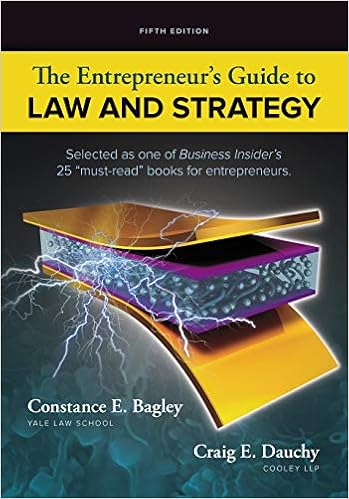
Expensive, but the resource you’ll need when you’re in business. It is imperative you understand what your lawyer is doing for you. The Entrepreneur’s Guide to Law and Strategy is where you’ll learn that.

Now in its fourth edition, Venture Deals: Be Smarter Than Your Lawyer and Venture Capitalist is the most complete resource available on preparing your company for professional investors.

cooleygo.com – from law firm Cooley LLP. Lots of articles and downloadable documents to help you get started, and to help you understand some of the legal requirements and issues you’ll face. Here’s a post to start off with: How To Choose A Lawyer For Your Startup.
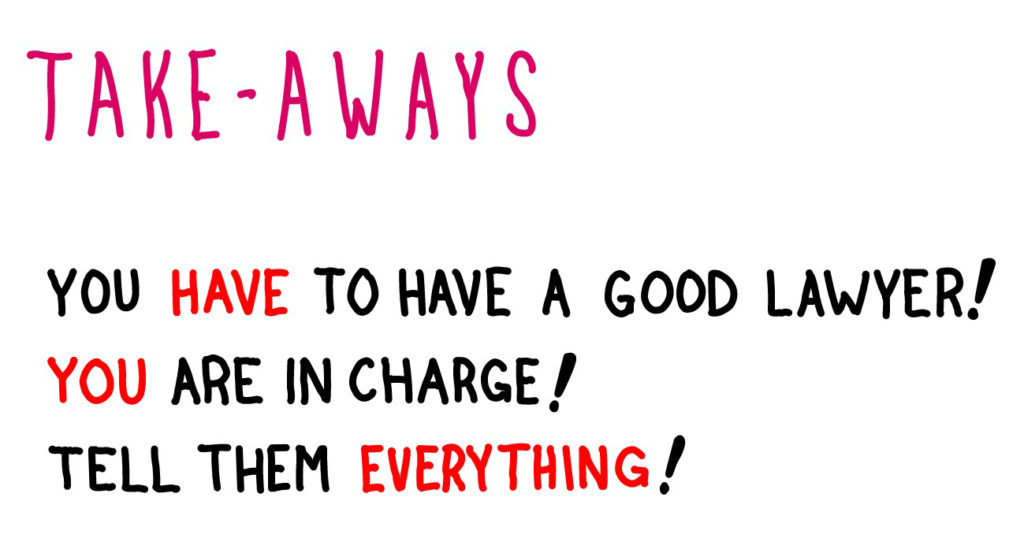
Did I mention Get It In Writing?
